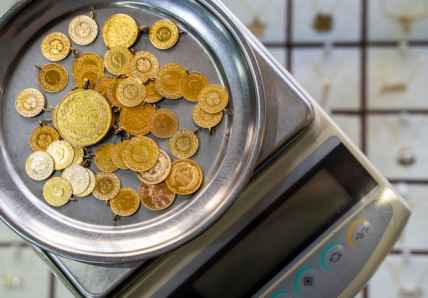If you’re in need of emergency cash, selling gold could be a quick and effective way to get the funds you need. Gold is a valuable asset, but to get the most for your items, you need to know the process and what factors can affect the price. In this blog, we’ll explore essential tips and key considerations when selling gold to ensure you make an informed decision.
Understanding the Value of Your Gold
Before selling your gold, it’s crucial to understand how much it’s worth. The price of gold fluctuates regularly, so knowing the current market price is key to ensuring a fair deal. Gold comes in various forms, including jewelry, coins, and bullion bars, and each type might have a different value based on factors like weight, purity, and demand.
Gold purity is measured in karats, and it’s important to know your item’s karat rating, which indicates how much pure gold it contains. For example, pure gold is 24-karat, but most jewelry is made with a combination of metals for durability. If you understand the karat rating of your gold, you’ll have a better idea of its value when selling.
Understand the Types of Gold Available
Gold comes in several colors, including yellow, white, rose, blue, purple, and black. These colors are created by mixing pure gold with different metals. For example, rose gold gets its pinkish hue from copper, while white gold is made with metals like palladium or nickel.
The type of gold can impact the price, especially if the gold item is rare or has a unique color. Understanding the type of gold you have will help you make a more informed decision when selling.
Research Prices Before Selling
One of the most important steps before selling your gold is researching its current market value. The price of gold can change daily, and you want to make sure you’re selling it at a fair price. Take some time to check the market price, which is usually quoted in terms of Troy ounces, and compare it across different platforms and gold dealers.
Remember that the price you’ll receive for your gold might be different from the current market value due to factors such as your item’s condition and demand. It’s also important to note that the price you’re quoted may be lower than the retail price you originally paid.
Finding the Right Buyer
Once your gold is cleaned and ready, it’s time to find a buyer. You have two main options: local buyers or online gold buyers.
Local Buyers: You can sell your gold to a jeweler or a pawn shop. Jewelers often offer better prices because they may want to resell the gold, and they’re more likely to give you a fair appraisal if your gold contains valuable gemstones. Pawn shops, on the other hand, might offer a quick cash exchange, but their prices are usually lower than what jewelers would offer.
Use search terms like “sell gold near me” to find reputable local buyers. Local buyers can also help you evaluate any gems or stones in your gold jewelry, which could add to the value.
Online Buyers: Online platforms like Cash For Gold USA, Kitco, and Express Gold Cash allow you to sell your gold from the comfort of your home. These platforms often offer competitive prices, but you should be aware of shipping costs and any potential transaction fees. Before sending your gold, make sure to read the terms carefully and check for any hidden costs.
Safety and Security When Selling Gold
Gold transactions can be high-value, so it’s essential to take precautions to ensure safety. If you’re shipping your gold to an online buyer, use secure packaging and consider insuring the shipment. For in-person sales, meet in safe, public places and make sure to check the buyer’s reputation.
Conclusion
Selling gold for emergency cash can be an effective way to get the funds you need, but it’s important to approach the process with knowledge and care. By understanding the value of your gold, preparing it for sale, and finding the right buyer, you can ensure that you get the best possible price. Keep in mind that market conditions, the type of gold, and the emotional value of your items all play a role in making the best decision for your situation.

